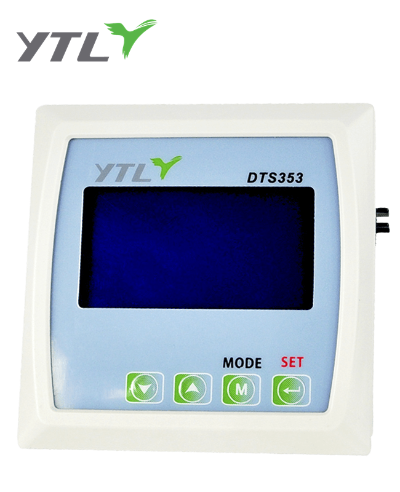What is a panel kWh meter? A panel kWh meter, also known as an electrical energy meter or simply an energy meter, is a device used to measure and record the amount of electrical energy consumed in a building or specific circuit. This meter plays a crucial role in accurately calculating electricity consumption and subsequent billing.
A panel kWh meter, also known as an electrical energy meter or simply an energy meter, is a device used to measure and record the amount of electrical energy consumed in a building or specific circuit. This meter plays a crucial role in accurately calculating electricity consumption and subsequent billing.
Panel kWh meters are typically installed in distribution boards or electrical panels, which house the various circuits and electrical appliances of a building. The meter acts as an intermediary between the electrical grid and the internal electrical system, keeping track of the energy flowing through it.
The primary unit of measurement for an energy meter is kilowatt hours (kWh). A kWh represents the amount of energy consumed when a one-kilowatt electrical load is operated for an hour. Panel kWh meters precisely measure energy by monitoring the electrical current and voltage passing through them. These meters are typically equipped with digital displays, enabling users to easily view the cumulative energy usage.
The panel kWh meter can be divided into two main types: electromechanical meters and electronic meters. Electromechanical meters have been widely used since the early days of electricity distribution. They employ traditional mechanical measuring mechanisms combined with electromagnetic principles to determine energy consumption. The rotating disc within the meter rotates proportionally to the amount of electricity consumed, thus providing accurate readings.
On the other hand, electronic kWh meters have gained popularity in recent times due to their higher accuracy and additional features. These meters employ advanced electronic circuits to measure and record energy consumption. Unlike electromechanical meters, electronic meters provide real-time readings and can communicate with other devices for automated data transfer. They also offer the ability to log and analyze energy consumption patterns, empowering users to make informed decisions regarding energy-saving measures.
Notably, panel kWh meters are crucial in facilitating fair billing practices. They record the energy consumption of individual circuits or sections, allowing for accurate allocation of costs within multi-dwelling buildings or commercial complexes. This metering system enables tenants or businesses to pay only for the electricity they consume, fostering fairness and transparency.
In addition to billing purposes, panel kWh meters also play a vital role in energy management. By monitoring real-time energy consumption, building owners or facility managers can identify high-energy-consuming areas and equipment. This information can help optimize energy usage and implement energy-saving measures, ultimately reducing both costs and environmental impact.
In conclusion, a panel kWh meter is an indispensable device for measuring and recording electrical energy consumption. Its accurate and reliable data collection enables fair billing practices, fosters energy management, and facilitates the implementation of energy-saving measures. As technology continues to advance, these meters are likely to evolve, incorporating new features and functionalities to meet the ever-growing demands of the energy industry.
Knowledge
What Is a Panel kWh Meter?

YTL is a professional supplier of energy meter and AMI solution. the Top 100-enterprise with most investment value in Zhejiang. And“Yongtailong”is the famous brand of Zhejiang. With nearly 20 years' experience in energy metering, we devote ourselves to providing competitive projects and creating value for customers.
● Online + Offline. Provide cost-effectiv solutions
● Strict quality control mechanism.High quality assurance
● Five R&D centers,combine with hardware&software design, experiment and testing
● Global service capability, provide customers timely and effective solution
● Good customer feedback. Reliable after-sales service
● Online + Offline. Provide cost-effectiv solutions
● Strict quality control mechanism.High quality assurance
● Five R&D centers,combine with hardware&software design, experiment and testing
● Global service capability, provide customers timely and effective solution
● Good customer feedback. Reliable after-sales service
-
- ABOUT YTL
- About YTL
- Factory
- Honor
- Development
- Privacy
-
- YTL culture
- Culture
- Values
- Advantage
- Three Phase kWh Meter
-
- products
- Single Phase Din Rail Meter
- Three Phase Smart APS Electric Energy Meters
- Three Phase Multi Function Electronic Energy Meter
- Digital Electric Meters
- Electronic Energy Meter
- Electronic Energy Meters
- Three Phase Keypad split type Energy Meter
- Single Phase IC Card Prepayment Energy Meters
- Three Phase Anti-tamper Suspension Energy Meters
-
- Information Activity
- Exhibition News
- Blog
- Staff Activity
- Single Phase Smart Watt Hour Meter
COPYRIGHT © 2020 Zhejiang Yongtailong Electronic Co., Ltd. ALL RIGHTS RESERVED .  China Electronic Energy Meters Manufacturers
China Electronic Energy Meters Manufacturers

 English
English 中文简体
中文简体.jpg?imageView2/2/w/500/h/500/format/png/q/100)

.jpg?imageView2/2/w/500/h/500/format/png/q/100)



-1.jpg?imageView2/2/w/500/h/500/format/png/q/100)






